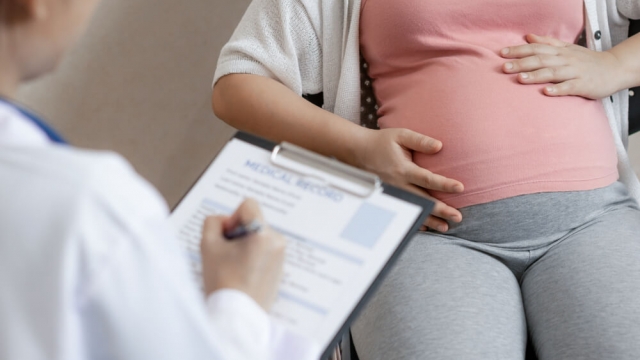The "Ozempic baby boom," as discussed on social media and reported by The Washington Post, has garnered some attention.
Women facing diagnoses such as polycystic ovary syndrome (PCOS), endometriosis, and other infertility issues have been sharing their stories on social media, saying that they have become unexpectedly pregnant after using the new diabetes drugs — but is this truly possible?
The Washington Post reports that there is limited research on the impact of glucagon-like peptide 1 (GLP-1) drugs like Ozempic and Wegovy on the ability to conceive, as women seeking pregnancy were excluded from early trials of the drugs.
Scripps News consulted an expert to address the possible phenomenon.
"It's a very interesting phenomenon. It's what I've heard about both on the internet and from my colleagues, and what I've seen in my own practice too, it's definitely true," dual board-certified OB-GYN Dr. Greg Marchand told Scripps News. "What we have here is a very powerful medication that works in several ways on the body; of course, it helps you lose weight, makes you more healthy in other ways as well, lowering blood sugars, decreasing the risk of heart attack. So you've got a medication that all around increases your own health, which is gonna increase your fertility."
According to Marchand, a very prevalent hormonal disorder in women called PCOS, which often hinders women from conceiving, is effectively being treated by these types of medications — despite lacking FDA approval for it. The Centers for Disease Control and Prevention says that in the U.S. approximately 5 million women suffer from PCOS, with more than half of them developing Type 2 diabetes by age 40, and therefore needing to be prescribed medicine such as Ozempic to treat it.
"That's a disease that's keeping a lot of women from getting pregnant. So I'm seeing exactly what you're seeing; I'm seeing a lot of women that, after [they] start on the GLP-1 agonists, after they've been on it for a while, they might come in with a positive pregnancy test and say, 'I didn't think I could get pregnant' or 'My husband and I have been trying for years; we just had given up,' and now suddenly have a positive pregnancy test. So it is something I'm seeing on almost a daily basis here," said Marchand.
While Dr. Marchand's statements are based on anecdotal evidence, and research and clinical trials would need to be conducted to confirm them, he says that women who are taking these drugs and do not want to be a part of the "Ozempic baby boom," should not worry or panic, but should continue to take their birth control as usual.
SEE MORE: Scripps News Investigates: A shadow market for diet drugs
Trending stories at Scrippsnews.com



